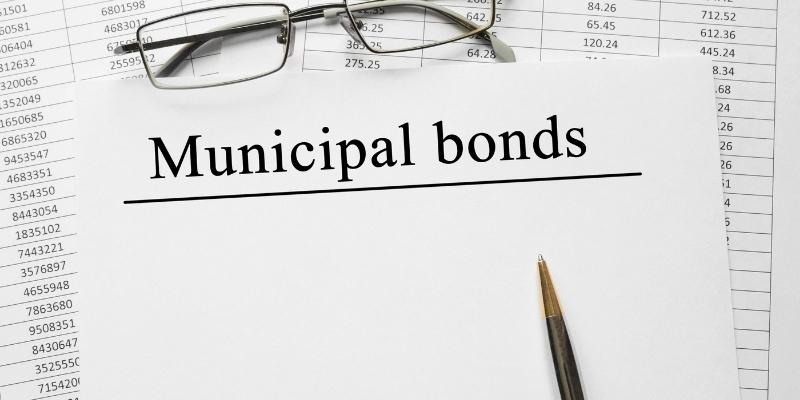What are The best ways to Buy Municipal Bonds Directly
Dec 23, 2023 By Susan Kelly
Historically, municipal bonds have been and continue to be seen as a low-risk investment. In particular, investors should prioritize protecting their assets over accumulating new ones when retirement age approaches. A municipal bond can be purchased on either the primary or secondary markets.
These are the two different markets where one can do so. In the main market, a bond issuer participates when they offer their bonds for the first time to the general public for purchase. The market in which existing bondholders purchase and sell bonds after the bonds have already been issued is usually called the secondary market.
It is because the term secondary market is commonly used. When the County Board decides to issue bonds, it approves the sale of brand-new bonds on the primary market. Selling these bonds by holding a competitive auction or engaging in private talks is possible.

What Are Municipal Bonds?
When a county, state, city, or other governmental entity needs money for ongoing expenses or large-scale construction projects like new schools, roads, or sewer systems, it may turn to municipal bonds for the money it requires to cover its debts. Investing in municipal bonds is similar to giving money to the government in exchange for interest and the return of principal payments over time.
The maturity date (when the issuer repays the bond's principal) can be many years in the future for municipal bonds. It is common practice to classify bonds with a maturity of one to three years as "short-term" and bonds with a duration of ten years or more as "long-term."
Interest earned on municipal bonds is often excluded from U.S. federal income tax. Because of the exemption from federal income tax, the interest rate on tax-free municipal bonds is typically lower than the rate on taxable fixed-income securities like corporate bonds of comparable maturities, credit quality, and other factors.

Types Of Municipal Bonds
There are two main municipal bonds available general obligation bonds and revenue bonds. The purpose of general obligation bonds is to fund publicly funded projects that are not dependent on a specific revenue source. Instead, revenue bonds are issued to fund public projects that are expected to make a profit. Each sort of investment comes with its own set of pros and cons.
Revenue Bonds
Municipalities can issue revenue bonds to finance projects that will generate money, such as toll roads or concert halls. Bondholders will be repaid from the project's earnings. Revenue bonds have a greater default rate than general obligation bonds because the completion of a particular project is on schedule and within budget, and the collection of forecasted revenues has a larger risk than other types of bonds. In light of this, you should investigate the issuer's financial standing before contributing funds.
Obligation Bonds
It is possible to employ general obligation bonds to fund non-profit public works projects in the local community's best interests. Instead of relying on a particular asset, the issuer of general obligation bonds relies on their good name and credit to back up their promise to pay back the principal and interest on the bonds. Consequently, general obligation bonds are typically among the more secure investment opportunities available on the bond market.
Best Ways To Buy Municipal Bonds
Municipal bonds can be purchased directly or indirectly through bond funds, two of the many investment options available to investors. Investors can purchase bonds in several ways, including through the issuing municipality, a bond dealer, an investment bank, or a bond exchange. The most popular and fruitful investment strategies for municipal bonds are discussed below.
Primary Market
On the primary market, new municipal bonds are available for purchase; however, this market is primarily patronized by investors with very substantial financial resources. You must open an account with a credible bond seller (such as the investment bank that underwrote the bond issue) to invest in municipal bond issuance.
You will then need to work directly with a representative from that bank. If you purchase municipal bonds in the primary market, you won't have to pay anything beyond the face value.
Secondary Market
Most individual retail investors purchase municipal bonds in the secondary market. The face value of a municipal bond is normally $1,000; however, the secondary market values the bond issuance in $100 pricing increments.
Since this municipal bond has already been issued, it is available from a wide range of entities, such as conventional financial institutions, investment firms, bond dealers, and even existing investors in municipal bonds trading on the open market. The secondary market makes it easier to purchase municipal bonds directly, but you should be prepared to pay a small premium or charge for the privilege.
Mutual Fund And Exchange-Traded Fund
Investing in municipal bonds can be made more diverse across various issues by purchasing a bond mutual fund or exchange-traded fund (ETF) instead of buying individual bonds. You gain access to the experience of the fund managers who pick which municipal bonds to hold and which ones to sell when you invest in a mutual fund that invests in municipal bonds. These fund managers choose which municipal bonds to keep and which ones to sell.
You can open an account with a fund provider specializing in municipal bond funds or purchase shares of a municipal bond mutual fund through a discount brokerage. Both of these options are available to you. You must be informed that certain mutual funds charge annual fees of up to one percent of the amount you invest. These fees are ostensibly charged so that investors can access more broad investment resources.
Conclusion:
If you are constructing a fixed-income portfolio or rebalancing your equity holdings, municipal bonds are an option if you plan to invest in bonds. In addition, investing in municipal bonds may allow you to support local initiatives.
Income from municipal bonds is always exempt from federal taxation and is frequently exempt from taxation at the state or local level. Naturally, you should consult a tax professional to learn about the financial implications of any investment. However, muni bonds may be an excellent choice for tax-free returns.

Dec 09, 2023
Banking
How to Get a Car Loan With Bad Credit
Even with bad credit, you may still get a car loan.

Mar 24, 2024
Taxes
Can You File Taxes Without a Social Security Number? Understanding Your Options
Learn about filing U.S. taxes without an SSN, the ITIN application, and tax filing options for non-residents and individuals without a social security number.

Nov 26, 2023
Banking
5 Ingenious Money Moves You Should Make Before You Travel
Before you travel, it is wise to plan your trip financially so that you don’t overspend. It is also wise to set your finances in order to ensure your trip is as seamless as possible.

Feb 08, 2024
Investment
Invest in Real Estate for as Little as $1,000
Take the first step towards investing in real estate. We'll show you how to get started and answer any questions about investing in this world with a one-time investment starting at low cost of just $1,000

Jan 09, 2024
Banking
Demand in Relation to Advertising Elasticity
An indicator of how responsive a market is to changes in advertising exposure is the advertising elasticity of demand. The advertising campaign's ability to generate more sales is quantified by its elasticity. It is arrived at by dividing the proportional increase in demand by the proportional increase in marketing costs. When the advertisement elasticity is positive, more of the promoted product or service is bought as a result of the added exposure.

Dec 14, 2023
Investment
Decoding the Investment Duel: Fidelity vs. Schwab
Embark on a journey to decode the battle between Fidelity and Schwab. Our simplified guide delves into the nuances, helping you strategically decide where to grow your wealth.

Feb 08, 2024
Investment
High-Yield Muni Bond ETFs
Exchange-traded funds (ETFs) that invest in high-yield municipal bonds make their investments in the debt, or other local government bodies

Nov 10, 2023
Mortgages
U.S. Bank Personal Loans
If you are a client of U.S. Bank and have a FICO score of 660 or better, then a personal loan from U.S. Bank may be something you want to consider. This creditor has advantageous conditions, and after applying, you can have the money you need within a few hours at the most.

Oct 11, 2023
Taxes
What Is a Personal Exemption: An Eccentric Guide
Each individual the taxpayer provided was exempt from taxation up to the amount of money set aside for subsistence. To claim personal immunity, the taxpayer must demonstrate that their spouse or dependents meet specific criteria.

Oct 13, 2023
Banking
Definition of Online Bill Pay
Online bill pay is a payment or banking service that allows you to pay your bills online through a bank account, often without cost. It will simplify your finances by removing the requirement to write checks or divide and count the paper currency.

Jan 16, 2024
Banking
Credit Card Tips For Beginners
This article will give an expert view of the best tips to help you use your credit card correctly.

Feb 07, 2024
Mortgages
Homeownership Assistance Missouri
This provides a comprehensive guide to homeownership programs in Missouri. It covers a range of assistance programs available for first-time buyers and existing homeowners, explains how to apply for these programs, what to expect after application, and offers helpful tips and resources for homeowners. It concludes with a short FAQ section answering critical queries about buying a house in Missouri, loan requirements, and the concept of home rule in the state.